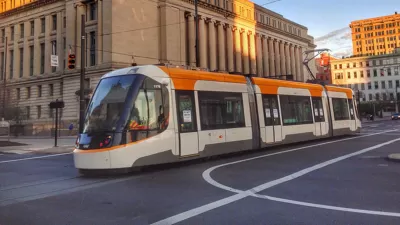This article from Next American City looks at the strengths and weaknesses of the website EveryBlock.com, an automated, geography-based information aggregator.
"At first blush, the concept behind EveryBlock makes sense: With the amount of media already out there, how better to capture it than with an automated program? Certainly, the data on the Web site provides users anywhere in the world a snapshot of a neighborhood's civic and, to some extent, cultural goings on. And there is much to be said for capturing, organizing and centralizing information as opposed to adding to it. But the absence of an editorial hand is also the site's weakness; results don't do much to enlighten visitors about a neighborhood's character. For instance, a recent search of a Harlem address (my own) brought up real estate listings, the results of restaurant inspections, and articles from the New York Times, the Daily News and the Observer that mentioned Harlem or nearby Central Park. There were also crime listings from surrounding precincts, a restaurant review and a couple of hazy photos (via Flickr) of the interior of an apartment. But because nothing has been published in the past week that gets to the real flavor of the neighborhood, a stranger would have no idea that, say, central Harlem is contending with gentrification and the social issues that come with it. The Web site, then, is kind of like those flowers for sale at the corner deli - beautiful, perhaps, but when you put your nose to petals, there isn't any smell. Put another way: One would like to think one's neighborhood is greater than the sum of its parts - a concept that's essential to the greatness of any city. On EveryBlock, there are parts, but no whole."
FULL STORY: A New Chip off the Old Block

Alabama: Trump Terminates Settlements for Black Communities Harmed By Raw Sewage
Trump deemed the landmark civil rights agreement “illegal DEI and environmental justice policy.”

Planetizen Federal Action Tracker
A weekly monitor of how Trump’s orders and actions are impacting planners and planning in America.

Why Should We Subsidize Public Transportation?
Many public transit agencies face financial stress due to rising costs, declining fare revenue, and declining subsidies. Transit advocates must provide a strong business case for increasing public transit funding.

Understanding Road Diets
An explainer from Momentum highlights the advantages of reducing vehicle lanes in favor of more bike, transit, and pedestrian infrastructure.

New California Law Regulates Warehouse Pollution
A new law tightens building and emissions regulations for large distribution warehouses to mitigate air pollution and traffic in surrounding communities.

Phoenix Announces Opening Date for Light Rail Extension
The South Central extension will connect South Phoenix to downtown and other major hubs starting on June 7.
Urban Design for Planners 1: Software Tools
This six-course series explores essential urban design concepts using open source software and equips planners with the tools they need to participate fully in the urban design process.
Planning for Universal Design
Learn the tools for implementing Universal Design in planning regulations.
Caltrans
Smith Gee Studio
Institute for Housing and Urban Development Studies (IHS)
City of Grandview
Harvard GSD Executive Education
Toledo-Lucas County Plan Commissions
Salt Lake City
NYU Wagner Graduate School of Public Service





























